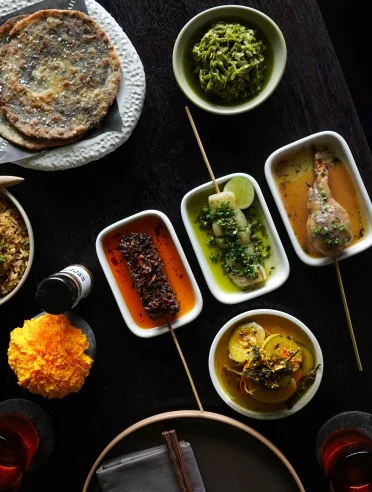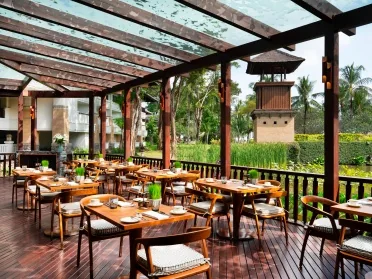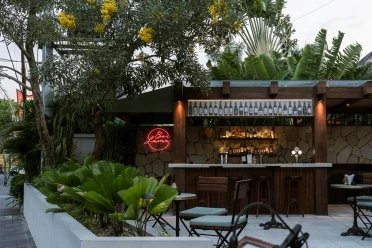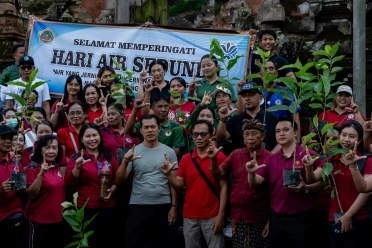The enchanting island of Bali is not only renowned for its breathtaking landscapes and vibrant culture but is also deeply rooted in traditions that bind communities together. One such tradition that epitomizes the spirit of togetherness is Megibung, a communal dining experience that goes beyond sharing food, encompassing camaraderie and unity.
Feast in Unity and Equality: Balinese Megibung Tradition
Historical Genesis
Megibung finds its roots in the 17th century, circa 1614 Çaka (1692 AD), when King Anglurah Karangasem introduced this communal feast to celebrate victorious expeditions in Lombok. Breaking down social hierarchies, the king and his soldiers shared a meal from a colossal leaf, marking the inception of a tradition that symbolized unity and camaraderie.
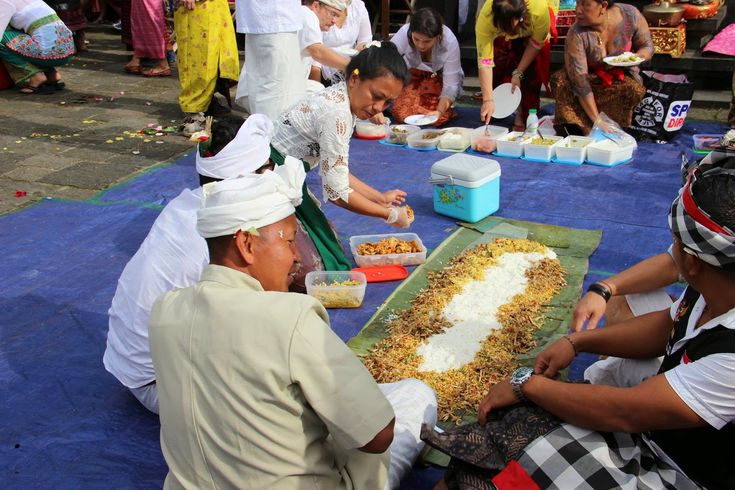
The Rituals and Culinary Artistry
Megibung is more than just a dining experience; it is a meticulously orchestrated process that commences with the gathering of ingredients and the collaborative preparation of a diverse array of Balinese dishes. The slaughtering of a pig, a symbolic act ingrained in tradition, underscores the profound connection between the culinary arts and the cultural heritage of the Balinese people.
Gastronomic Highlights
The Megibung feast is a symphony of flavors, featuring an array of traditional Balinese dishes. Some of the usual suspects on the Megibung table include:
Lawar: A traditional Balinese mix containing minced meat or fish, grated coconut, rich herbs, and spices, creating a savory and aromatic dish.
Urutan: Balinese sausage, spiced and flavored with local ingredients, offering a unique twist on a classic dish.
Pepesan: A delightful concoction of meat and vegetables wrapped in banana leaves, ensuring a burst of flavors with every bite.
Satay Varieties: Kablet (meat satay), satay tusuk, and sate nyuh (coconut satay) add a grilled element to the feast, complementing the other dishes.
These dishes, presented on a grand plate made from banana leaf or woven coconut leaf, showcase the culinary diversity of Balinese cuisine and are integral components of the Megibung experience.
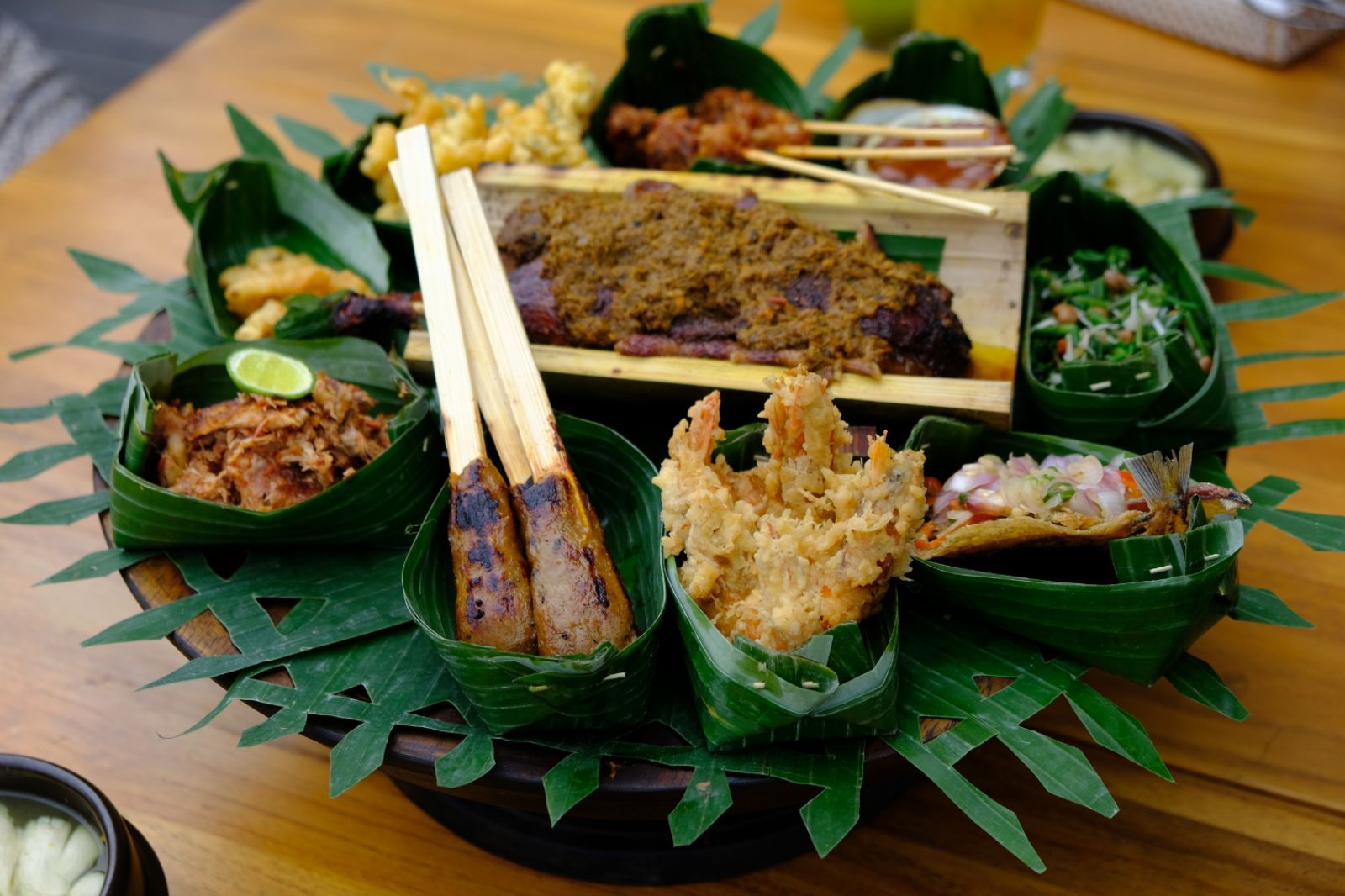
Communal Dynamics and Setting
Envision the communal setting, where groups of five to seven individuals gather, seated cross-legged in a circle. The communal feast is meticulously presented on a grand plate made from banana leaf or woven coconut leaf, serving as a canvas for a culinary masterpiece. The convivial atmosphere is initiated by the host, setting the stage for engaging conversations, laughter, and the shared enjoyment of the culinary treasures laid before them.
Egalitarian Values
One of the defining features of Megibung is its commitment to egalitarian values. Regardless of gender or caste, participants from diverse backgrounds converge, breaking societal barriers to partake in the shared experience of the feast. This commitment to inclusivity, rooted in the era of King Anglurah Karangasem, continues to be a hallmark of Megibung, reflecting the essence of unity and equality.
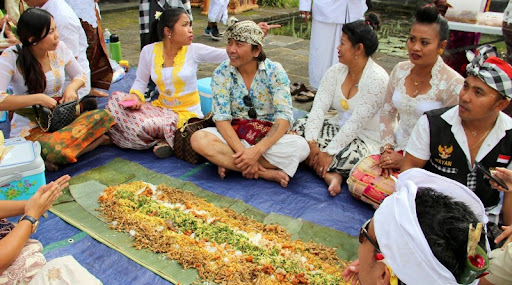
Contemporary Adaptations
While rooted in tradition, Megibung has evolved to adapt to modern times, expanding its presence beyond religious ceremonies to encompass various celebrations such as weddings, birthdays, and temple anniversaries. Balinese communities take pride in preserving Megibung as a cultural cornerstone, showcasing a dynamic interplay between tradition and contemporary life.
Rendition in Five-Star Resorts
The incorporation of Megibung into the dining packages of five-star resorts represents a harmonious blend of cultural heritage and luxury. Tourists and guests now have the opportunity to partake in this unique culinary tradition, experiencing the authentic flavors of Balinese cuisine in an opulent setting. The presence of Megibung in these resorts not only highlights Bali's rich cultural tapestry but also allows visitors to engage with the island's heritage in a luxurious environment.
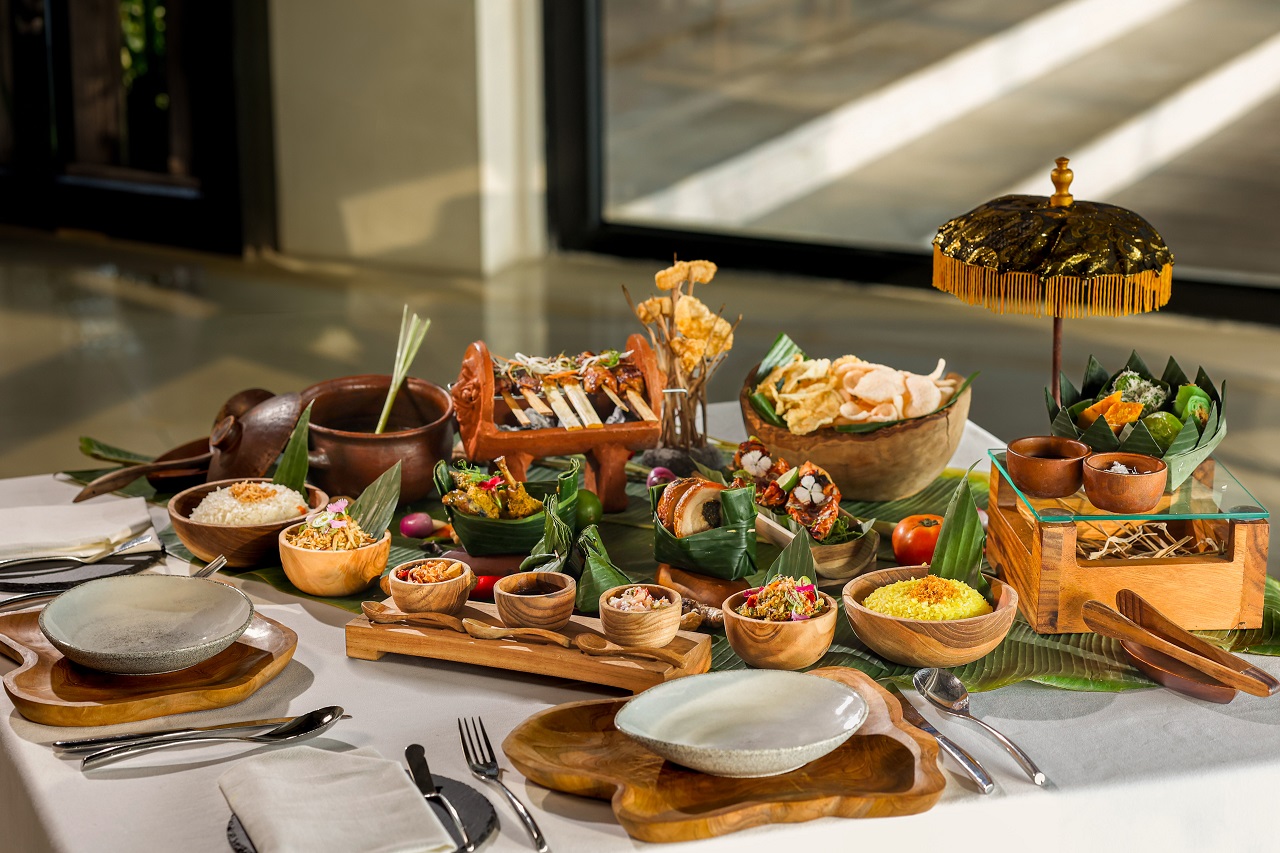
Etiquette and Unwritten Protocols
The Megibung experience is accompanied by a set of unwritten rules, fostering respect and harmony among participants. From the ritualistic hand washing before the meal to the disposal of food remnants in designated containers, these etiquettes contribute to the seamless flow of the communal dining experience, underscoring the reverence with which participants approach this cultural tradition.
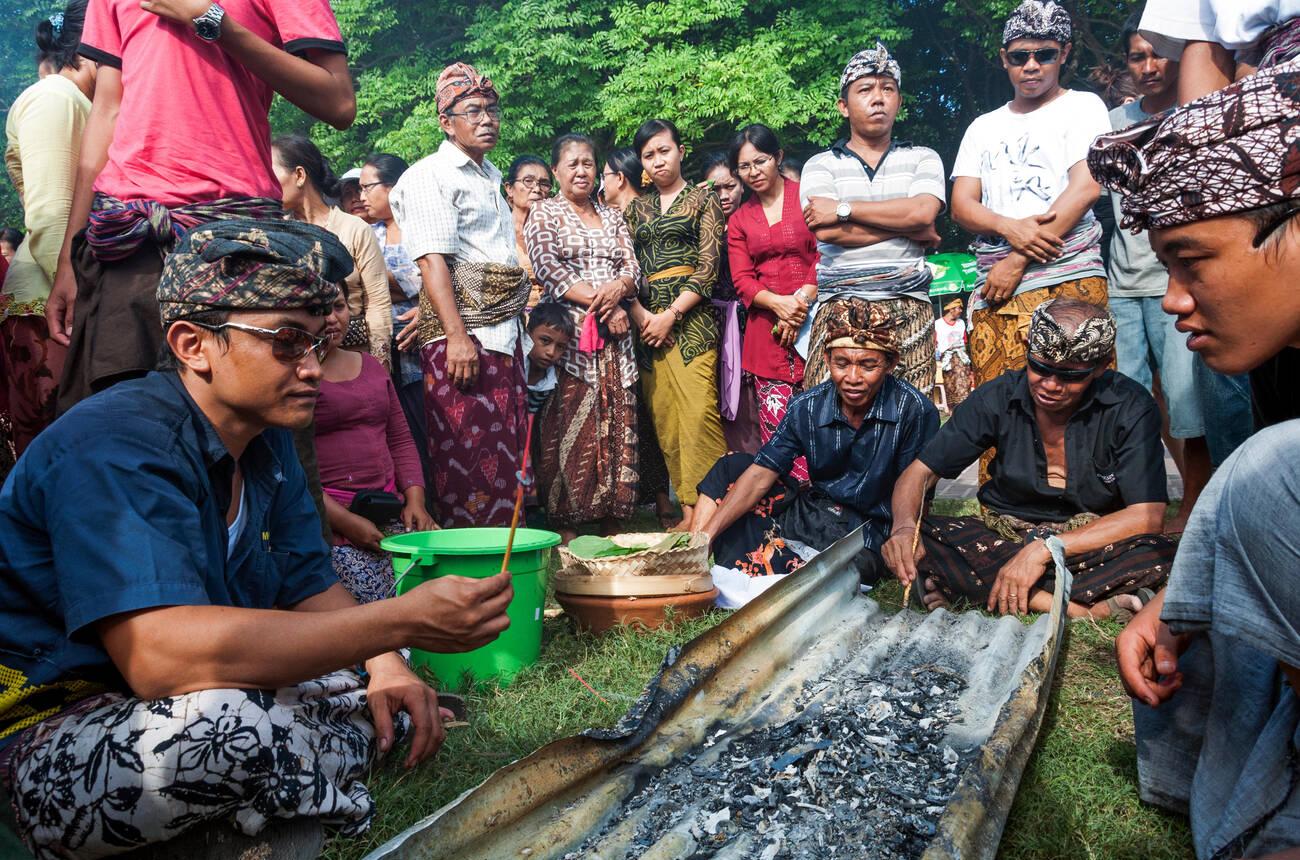
As the aroma of Balinese delicacies fills the air during Megibung, it transcends being a mere culinary event. It is a celebration of cultural identity, a showcase of culinary artistry, and a testament to the enduring spirit of unity and equality within the Balinese community. Megibung emerges as a profound cultural experience, inviting all to partake in the intricacies of a tradition that encapsulates the essence of Balinese heritage.



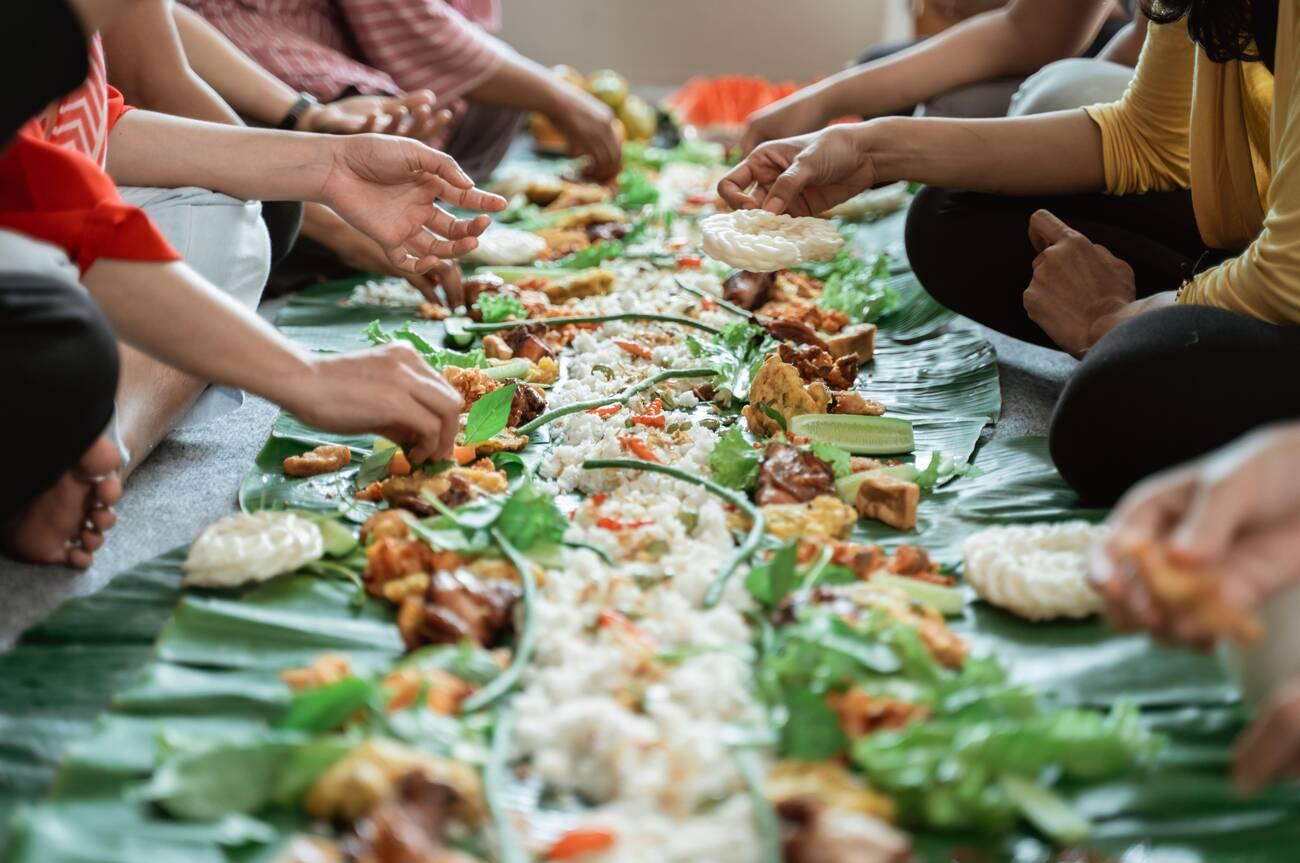
 Billy Bagus
Billy Bagus
 Feb 02, 2024
Feb 02, 2024
